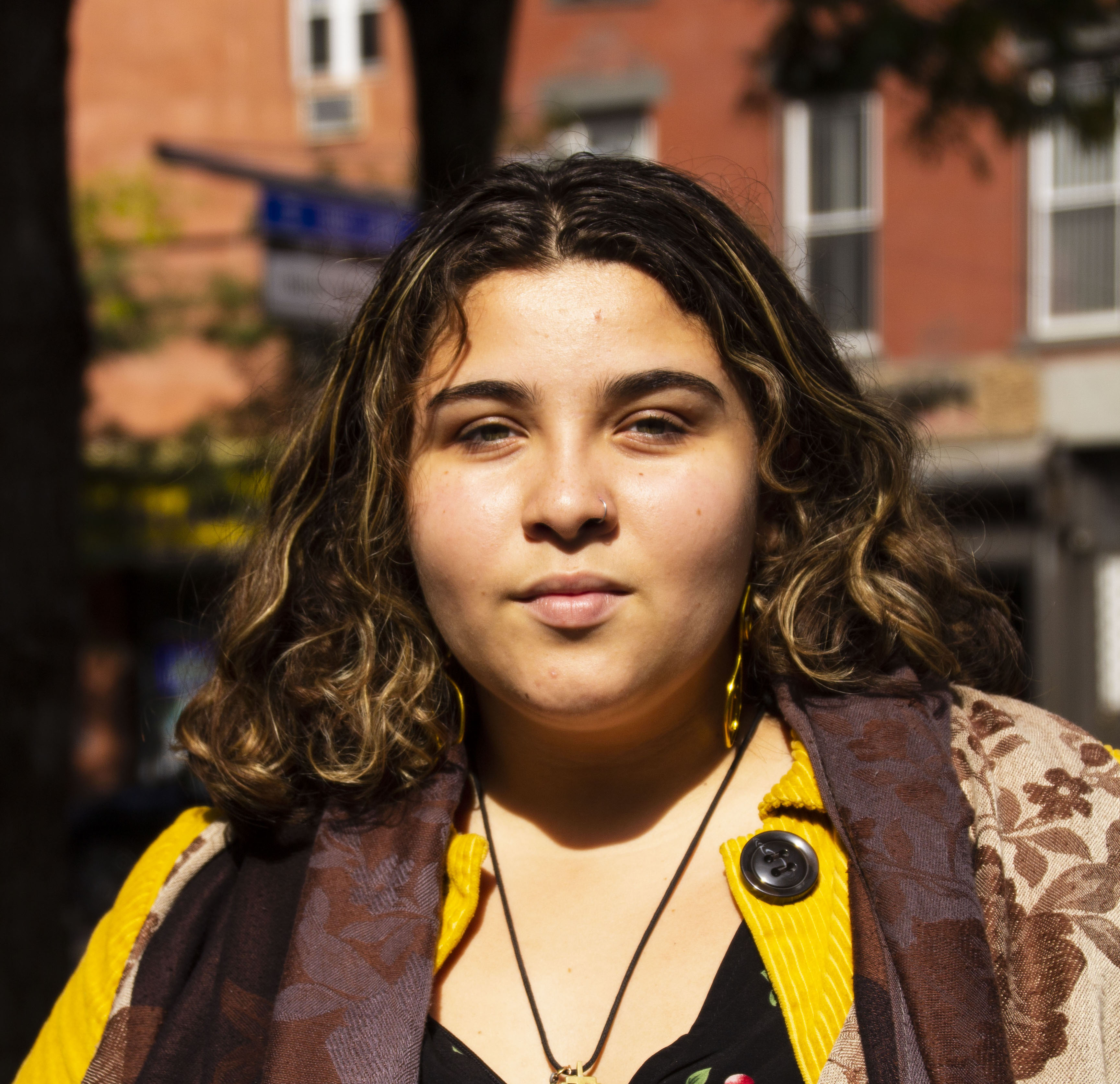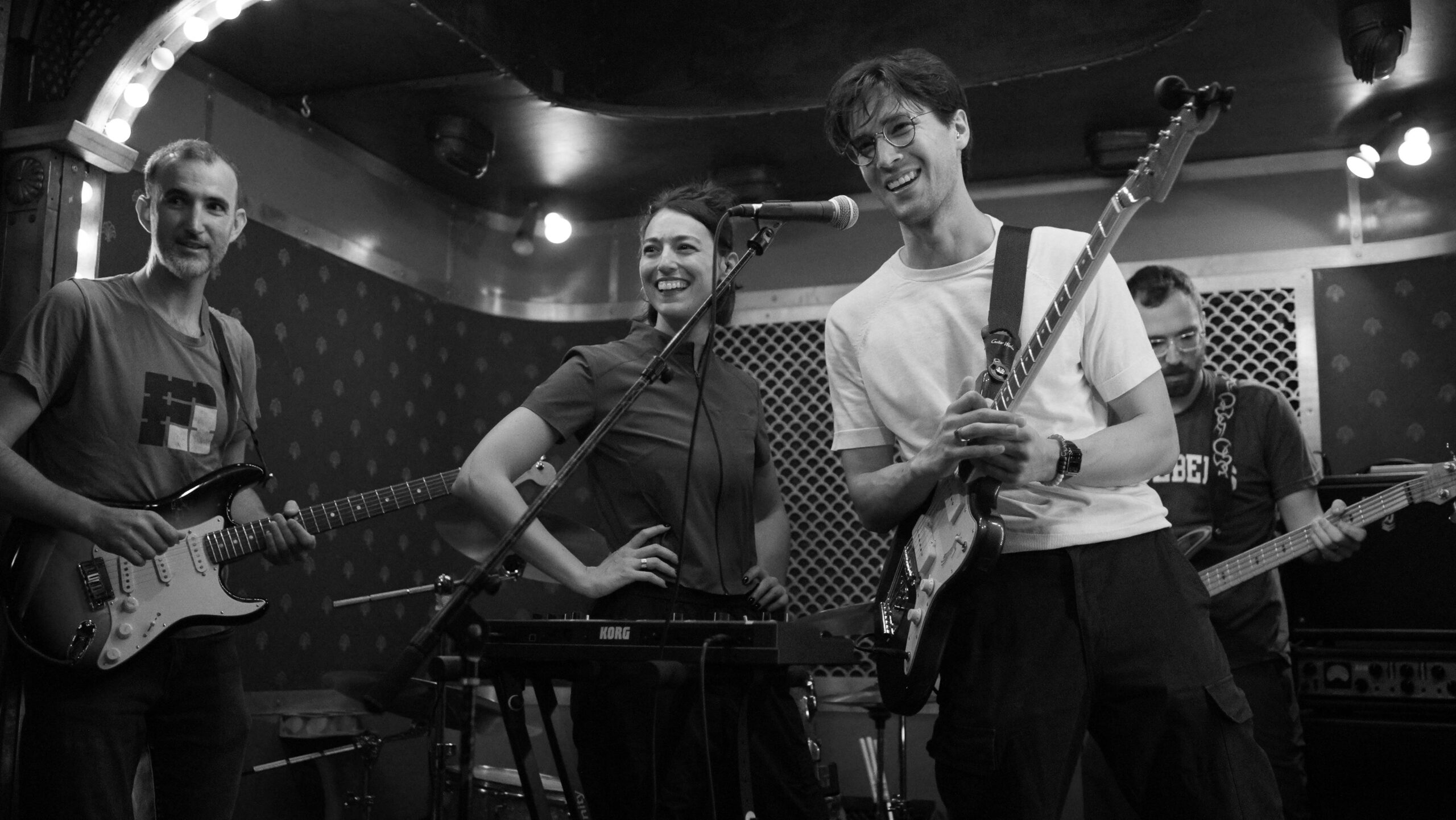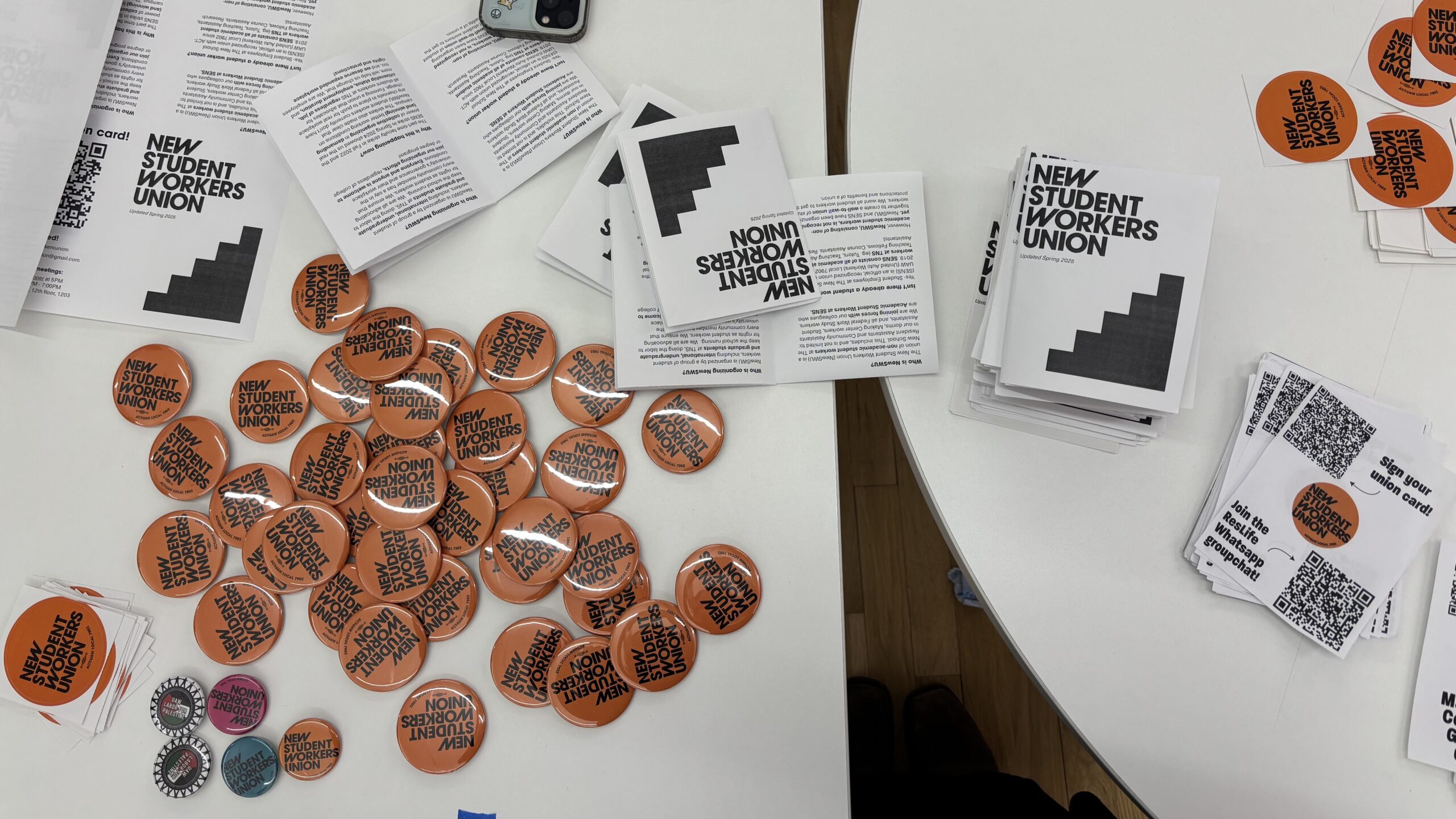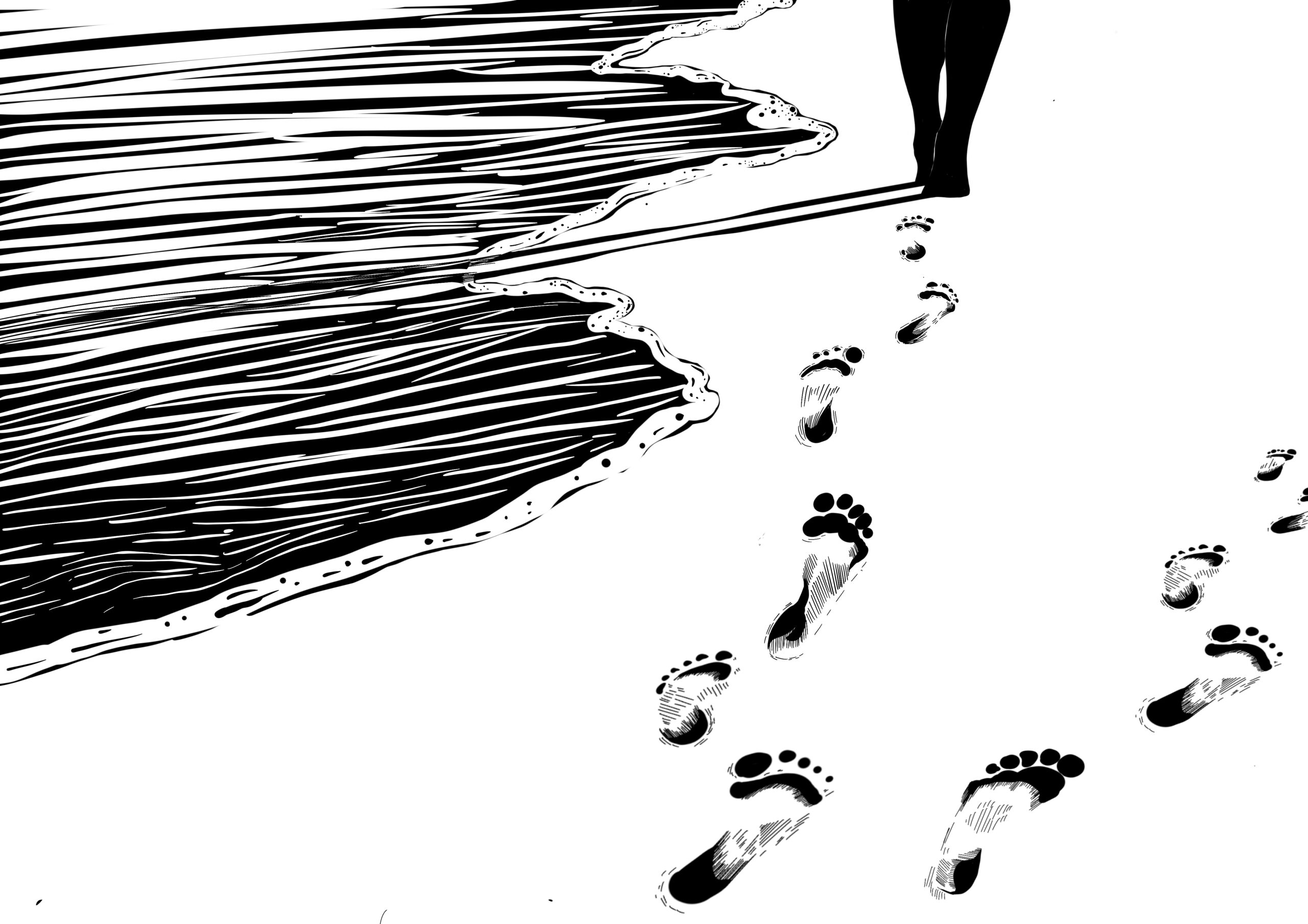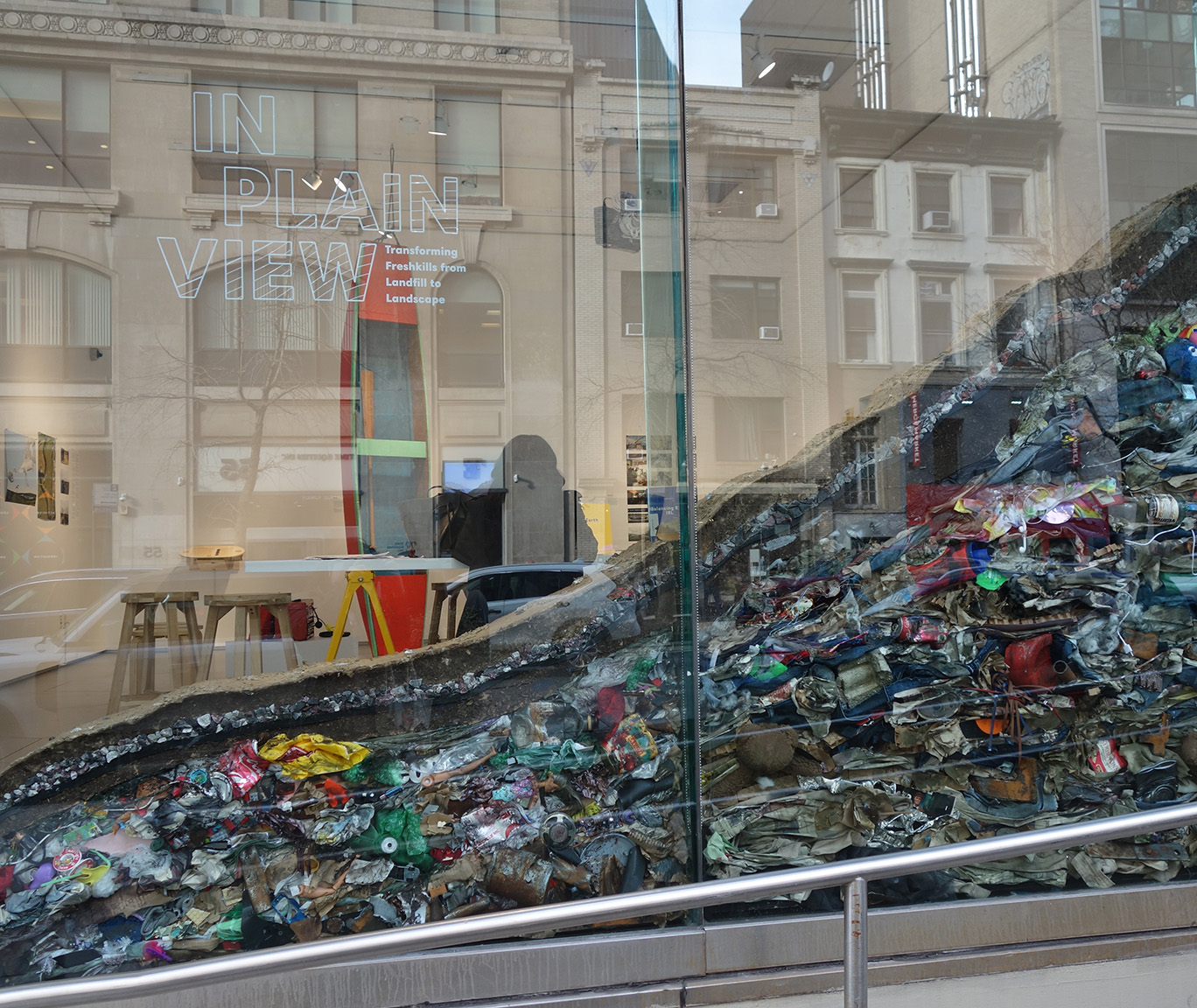This article appears in our October print issue.You can pick up a copy on newsstands around campus, or at our newsroom in room 520 in the University Center.
The New School Centennial has been promoted throughout campus and New York City since January: from marketing in the Union Square subway station to the week-long Festival of New. A focus of the Centennial is the New School’s adherence to its core values, set during the first decades of its founding. These values include academic freedom, tolerance, and experimentation, as stated in the current New School mission statement. But there are some students who do not feel these values are being thoroughly upheld. In June of this year, the University Climate Assessment was taken, which surveyed the student body, faculty and staff, to get a sense of the campus climate. It found that “while the demographic diversity of The New School, primarily in its student profile, is a source of pride, promotion, and learning, too many students feel unattended to, marginalized, and emotionally exhausted by the struggle to make The New School more equitable and inclusive. This was especially expressed by those from underrepresented US racial groups and lower income students.”
The following four students identify as first-generation, low-income, and believe the New School could do a better job at upholding these values. Interviews have been condensed and edited.
EMERALD DORCELLY, 18.
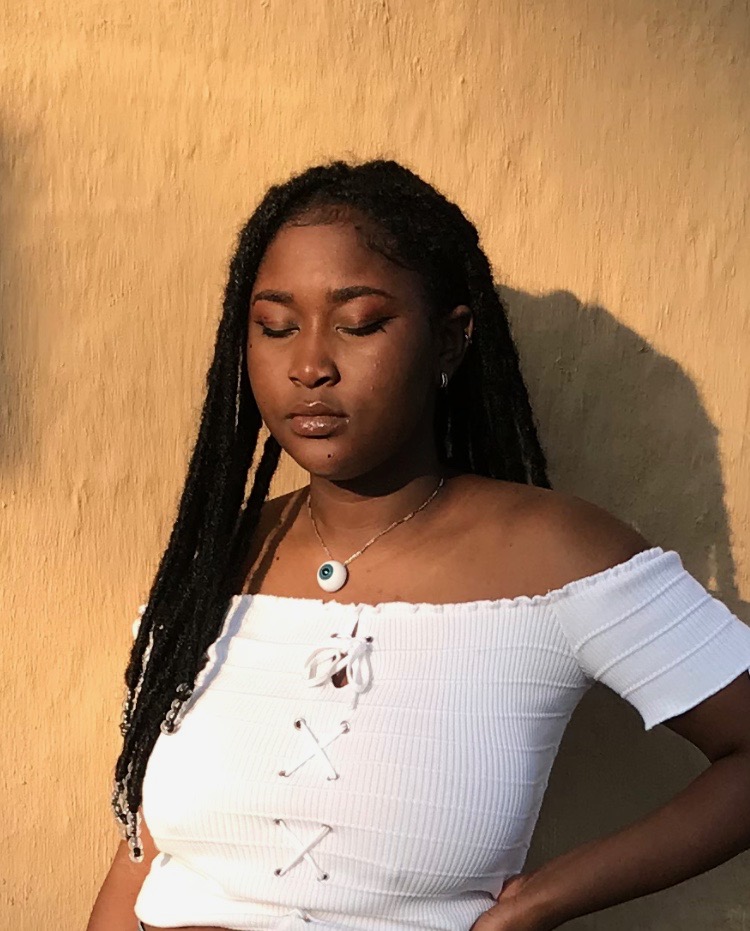
Emerald Dorcelly is a freshman this year, new to Eugene Lang. She’s interested in fashion journalism, and wants to explore religion more. Right now she’s an agnostic, but she’s leaning towards Judaism. She works at Joe and the Juice on Spring Street, and wears a necklace from a K-Pop band. Emerald is also a member of the Higher Education Opportunity Program (HEOP). She moved here from Haiti when she was 10.
“I don’t know what schools could do, but doing something to say ‘Hey, we know you go to our school and we care about you.’ That’s really not that much to ask.”
Dorcelly: In my two months of being here I haven’t really found a community or felt a community, other than maybe the people in the POC room. But if you want a community, you really have to just do it yourself, they don’t really try to do anything for you. HEOP has helped me in a lot of ways, such as they gave me a MetroCard to be able to travel, money to eat, they help with dorming, but not this year so much. We even had to do like a summer program where we got familiar with the classes and how things work and so we got regular assignments and stuff just to see how the classroom would be, and I was a little bit more prepared. And even with that month of training, I’m still not fully incorporated into the New School. I’m disappointed, but I’ve met a couple cool people. I honestly think a lot of their marketing is really just to get attention, to get people to come to the school, because once you’re at the school you’re already paying tuition. I really don’t think they’re what they put themselves out to be. Honestly, I really feel like they fooled me. Alexander Wang is one of my favorite designers and one of the reasons I was pulled into the New School in the first place was like, just because of him [Here, she’s referring to the promotion of alumni that didn’t necessarily graduate from the New School.]. I have to be like, ‘Props to you guys’, though, because even if sometimes I do feel uncomfortable, no one ever says anything that I feel like I have to speak up for [in the classroom].
ANDREW ORELLANA, 19.
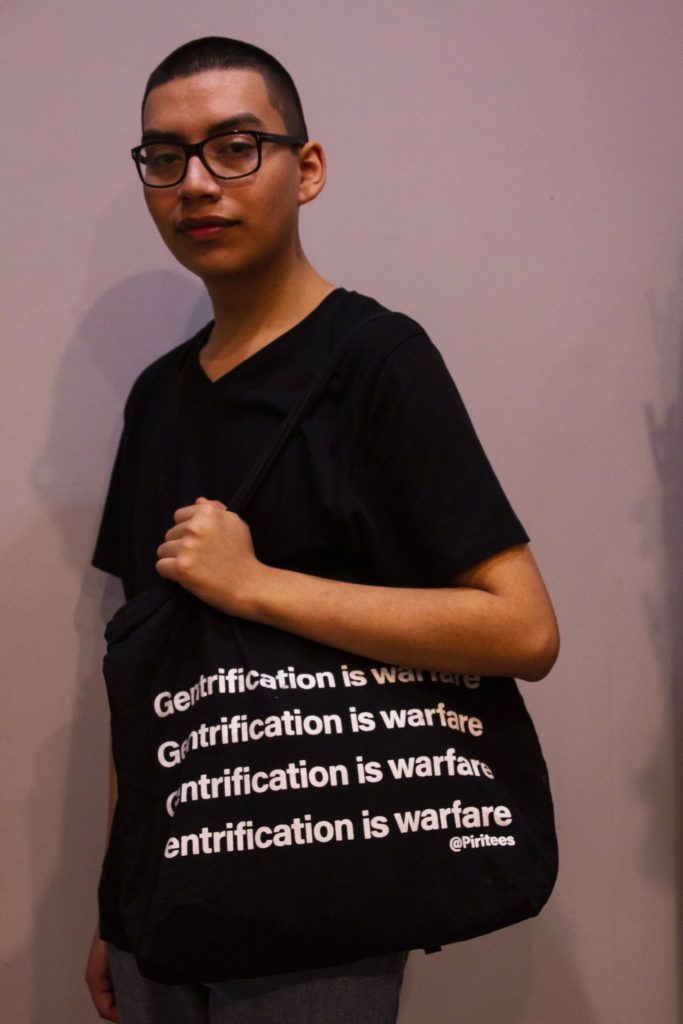
Andrew Orellana is a second year Journalism and Design student. He wants to focus his studies on documentary journalism, and film. He is a Gural Scholar. Andrew is Salvadorian-American.
“It’s really sad that the student has to take the responsibility on themselves to find a community they can fit in.”
Orellana: I feel like a lot of the time they promote isolation .I think that that’s seen in the students as well, like they go to school and then they just go home. I think in some instances their community isn’t grown out of the institution. These spaces weren’t being promoted as much, like the students of color space, I didn’t know about that until my second semester of being a freshman. I just feel like it’s a little bit difficult that you have to find these spaces where there’s a community. And if we’re going into classrooms, a lot of the classrooms are predominantly white students, and its predominantly white female students. And at times it’s really hard adjusting as a person of color, because most of us aren’t used to these environments. I’ve definitely had to find these roads to resources, definitely. I really wish the New School did promote more about these things. Okay, the New School’s 100 years old, great. But I mean there’s still a lot of work to be done. It’s so funny that the New School is 100 years old, but the students of color lounge is barely like two, three years old. I do agree with the academic freedom: I really appreciate that our school doesn’t have gen-eds. We can take classes that are geared towards our major from the get-go.
YAILENNE ESCOBAR, 19.
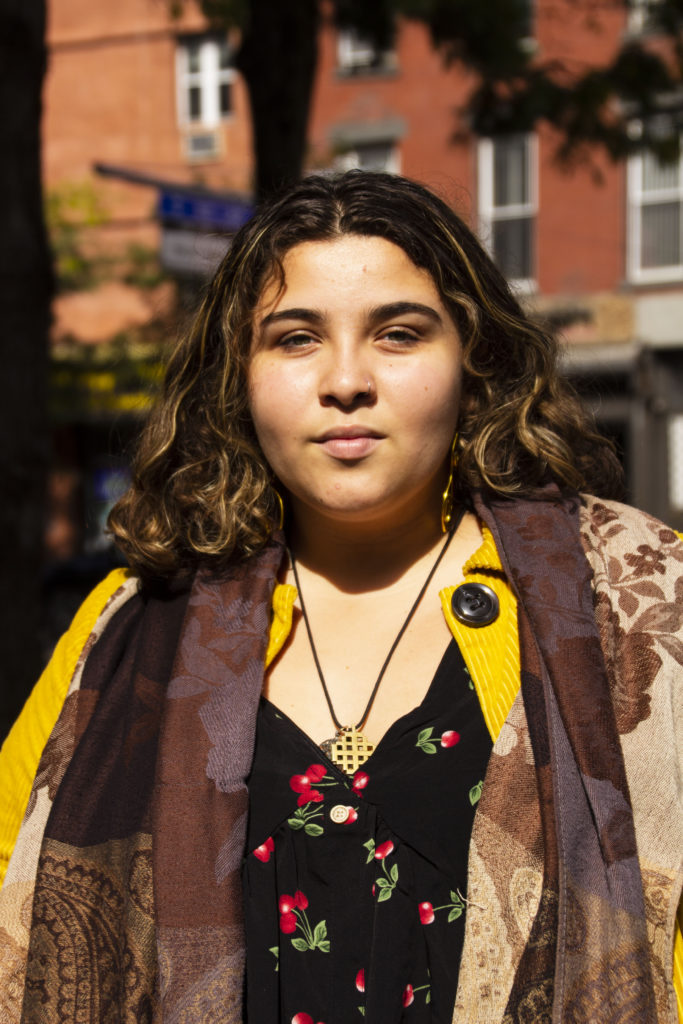
Yailenne Escobar wants to start a nonprofit. She has a five-year plan and a blog in the works, and she plans to start a podcast as well. She wears at least eight pieces of jewelry that have a story or meaning behind them. She is a sophomore at Lang and wants to declare her major in either Urban Studies or Sociology, with a minor in either Gender or Race and Ethnicity Studies. Her parents are from Colombia.
“That’s just the way it goes though. If you want to be heard, sometimes you have to go out of your character. And that sucks.”
Escobar: I was very intrigued to see how much they showed that they had a lot of connections [for the Centennial]. [The Festival] was cool because you could attend these things and probably make connections. But really, what were the opportunities that they’ve offered me? There really hasn’t been any. It’s me who goes out of my way to find opportunities. There are definitely people within the school that care about us, I know that’s very true. Honestly most of the professors I’ve had are very informed about how this institution works, and it’s even against them in some ways right? [Here, she’s referring to the ways in which these institutional issues can also affect faculty of color, or first-gen faculty.] So there are those people, but those people are a small number of the entire New School. For example, the Latinx group La Xente only two or three years ago got approved as a club. And you think that that’s all supposed to be thought of, if you’re wanting a diverse student body you should already implement that in your institution. Why is it that the students have to do that for themselves? Like yes, okay, we’re here, but you’re not going to do anything for us. There’s not really any sort of hope. You have to create your own shit so that you can be a part of something.
KEVIN ALATORRE, 20.
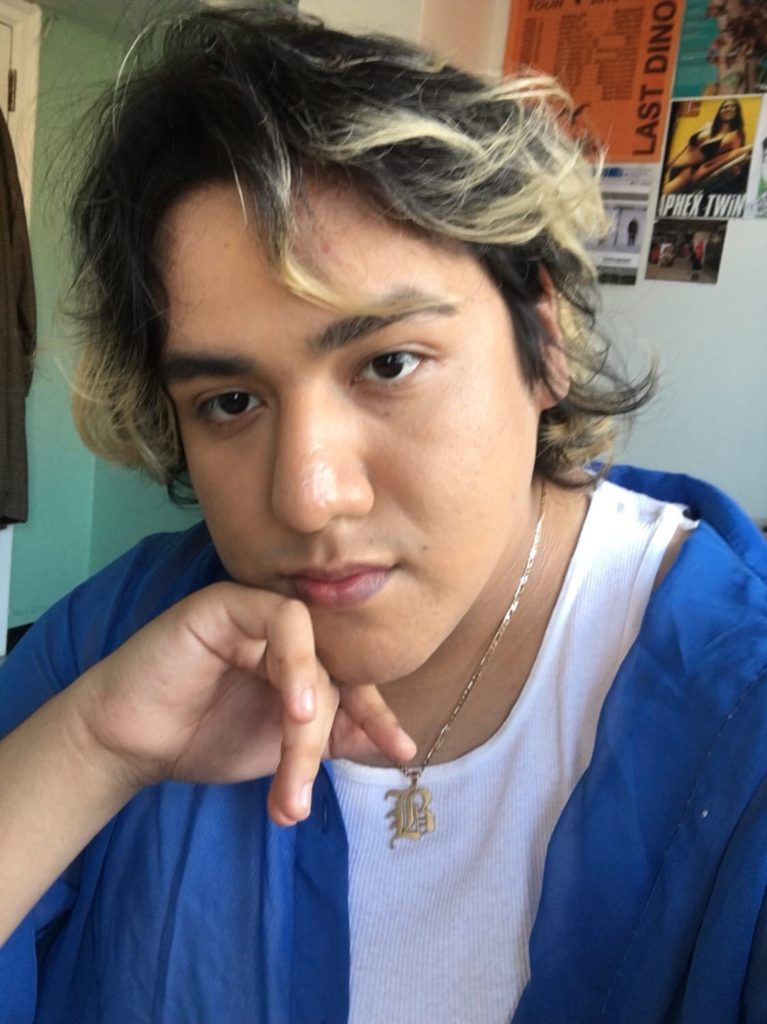
Kevin Alatorre works two jobs. He’s a Communication Design major at Parsons and an RA at 92Y. He and his friends created a New School astrology chart in their free time; he says he is a Parsons Sun but a Lang Moon. He is Mexican-American.
“Students try to be who they want them to be. They try to be the best and the boldest.”
Alatorre: I came with only my sister, she drove me all the way here. I went in and knew nothing. The whole orientation week was anxiety-driven. But the first-gen meeting was so welcoming. The groups help more [than TNS] and I think that’s a reaction to the New School. I think there’s a halfway point [for change]. If it were halfway, TNS and the students would have conversations of how to strengthen community and administrators would have to understand the students. It would validate the students that are here if we had what I like to call ‘organic diversity.’. They’re not reaching out to students to promote their work, they’re just flashing alumni at us. They’re trying to market it as the ‘new’ way to do things. Does it reflect the students? No. But it didn’t feel like they just had to check a box off. I’m taking the opportunities [TNS gives] for anyone, but there are microaggressions that I’ve felt. There was a girl in one of my classes who we were working together on a class project. She was at the printers and had to leave, and I remember her asking me to leave work early. I just remember crying in the office. I don’t think she realized that that was $30 I needed for the week.

